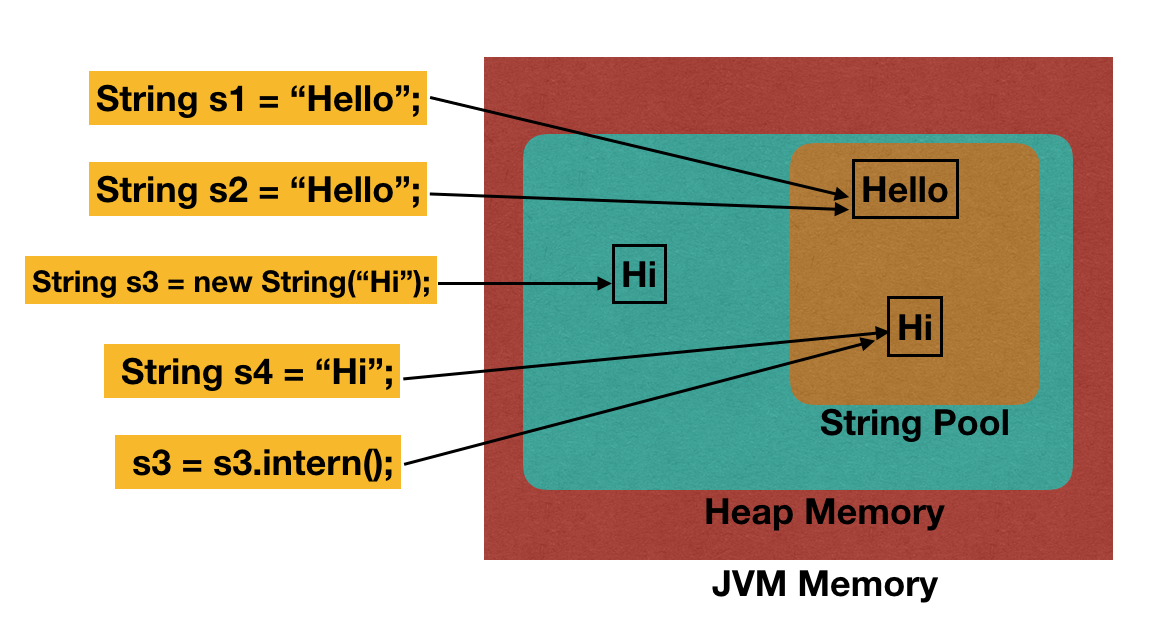Why Are Strings Immutable in Java? Security and Efficiency Perks
Why Are Strings Immutable in Java? Security and Efficiency Perks
Blog Article
Checking Out the Advantages of Unalterable Strings in Modern Programming Paradigms
In the world of modern-day shows paradigms, the principle of immutable strings stands as a cornerstone of robust software advancement. By taking on unalterable strings, programmers can ensure boosted information stability, boosted thread safety, streamlined debugging procedures, enhanced security procedures, and efficient efficiency optimization.
Boosted Information Stability

By avoiding the adjustment of string things, immutability gets rid of the threat of unintended modifications to the information they hold. This not just enhances the safety and security of the details however also boosts the integrity of the code that counts on these strings.
Immutability likewise supports safer multithreading environments, as concurrent access to immutable strings does not posture the threat of information corruption via synchronised modifications. This building simplifies the procedure of taking care of strings in identical programs situations.
Basically, immutability serves as a protective shield around the information kept within strings, enhancing their honesty by guaranteeing that when specified, their worths stay unchanged throughout the program's implementation.

Enhanced String Security
Immutable strings enhance the thread safety of programs by making sure that once a string things is created, its value can not be customized. This residential or commercial property gets rid of the risk of simultaneous threads trying to change the same string simultaneously, which might bring about information corruption or irregular states in the program - Why are strings immutable in Java?. In a multi-threaded atmosphere, where multiple threads accessibility and manipulate data all at once, the immutability of strings gives a level of safety by assuring that the information stays unmodified throughout its lifecycle
Simplified Debugging Procedures
Provided the improved string safety and security facilitated by immutable strings, a significant advantage emerges in the realm of streamlined debugging procedures. Unalterable strings, when developed, can not be modified, making it simpler to trace the circulation of information and determine the source of insects in a program. This immutability makes sure that strings remain consistent throughout the execution of the program, decreasing the likelihood of unforeseen changes that might bring about errors.
When debugging with mutable strings, developers typically come across problems where a string's worth is customized unintentionally, making it testing to identify the origin of a pest. Nevertheless, with unalterable strings, the data continues to be unchanged, permitting programmers to concentrate on assessing the actual logic of the code instead of finding where and when a string was customized inaccurately.
In addition, immutable strings streamline the debugging process by enabling much easier recreation of insects. Given that unalterable strings do not alter state, developers can recreate and examine bugs better, causing quicker recognition and resolution of problems within the codebase. This streamlined debugging workflow ultimately contributes to greater software program high quality and boosted total development effectiveness.

Boosted Security Steps
Enhancing data protection and strengthening system integrity, the usage of immutable strings in software application applications adds significantly to boosted safety and security measures. Unalterable strings additionally play a vital duty in stopping common security vulnerabilities such as buffer overflows and SQL injection assaults, as attempts to manipulate string data at runtime are inherently limited.
Moreover, the immutability of strings improves the predictability of program actions, making it simpler to confirm inputs and protect against unanticipated modifications that can compromise great post to read safety and security. This predictability simplifies the process of bookkeeping and confirming code, making it possible for programmers to identify possible security technicalities more effectively. Overall, incorporating unalterable strings into software development methods not just boosts the effectiveness and dependability of applications but additionally enhances their strength versus safety risks.
Effective Performance Optimization
When dealing with mutable strings, procedures like concatenation or substring creation typically result in the production of brand-new string items, leading to memory expenses and raised handling time. By permitting strings to remain unchangeable and constant, unalterable strings assist in better memory management and caching possibilities, eventually increasing the general performance of the software program.
Considering that unalterable strings can not be customized once developed, they can be shared throughout strings without the risk of unexpected adjustments, reducing the requirement for synchronization systems and boosting concurrency. Immutable strings streamline debugging procedures as programmers can trust that a string's value will stay constant throughout the program's execution, getting rid of possible mistakes caused by mutable state modifications.
Conclusion
To conclude, the benefits of making use of over here immutable strings in modern-day programs standards can not be overstated. Boosted information honesty, improved thread safety and security, simplified debugging procedures, enhanced security actions, and efficient performance optimization all add to the overall effectiveness of programming tasks. By integrating immutable strings into programs methods, programmers can benefit from a more dependable and durable codebase.
Immutability, an essential function of strings in programs languages such as Java and Python, makes certain that when a string object is developed, it can not be changed or customized.Unalterable strings enhance the thread safety and security of programs by making certain that as soon as a string object is created, its worth can not be modified. Unalterable strings also play an important role in protecting against typical safety and security vulnerabilities such as barrier overflows and SQL shot attacks, as attempts to manipulate string information at runtime are naturally restricted.
By this enabling strings to remain consistent and stable, immutable strings facilitate better memory management and caching possibilities, ultimately improving the overall performance of the software application.
Unalterable strings simplify debugging processes as developers can rely on that a string's worth will certainly remain constant throughout the program's implementation, removing potential errors caused by mutable state adjustments.
Report this page